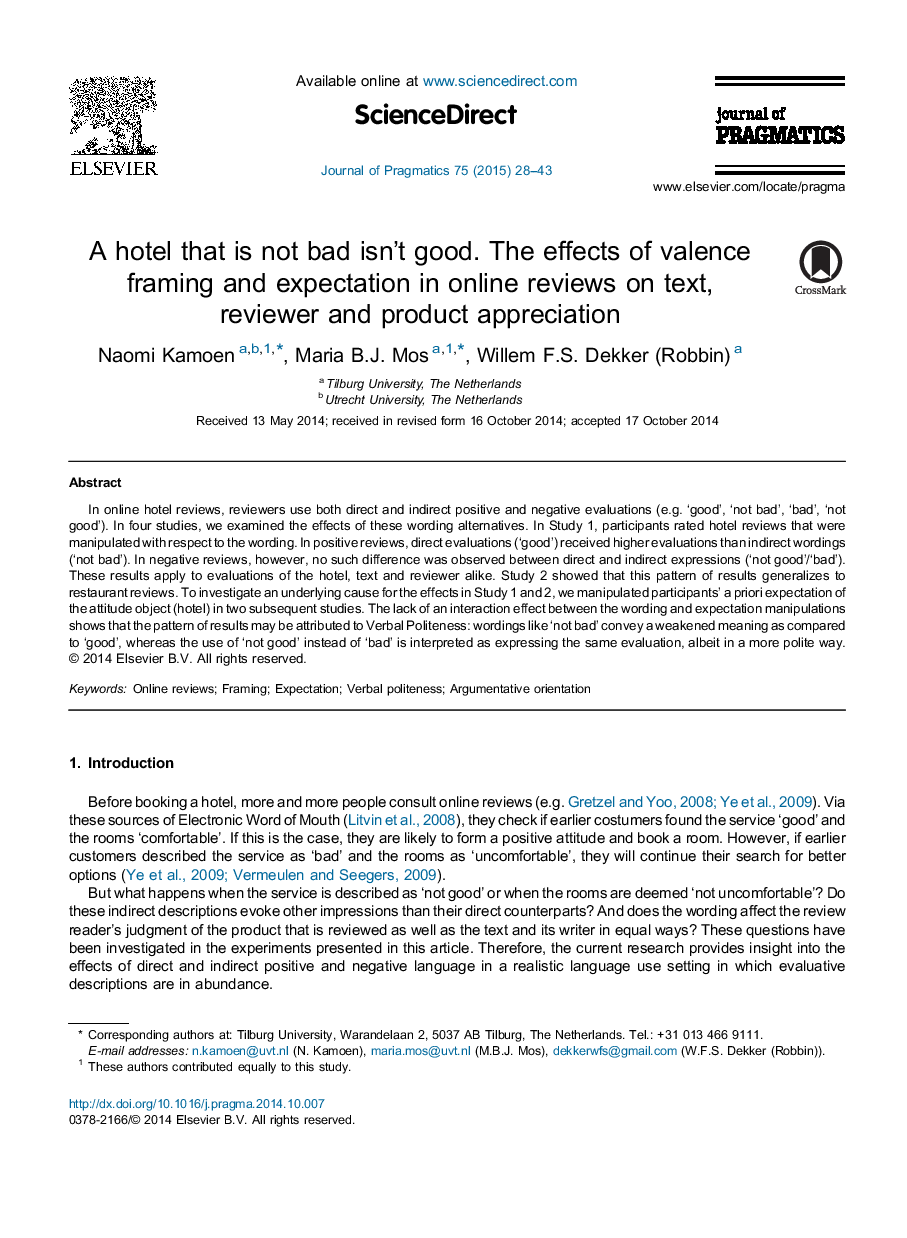| Article ID | Journal | Published Year | Pages | File Type |
|---|---|---|---|---|
| 932672 | Journal of Pragmatics | 2015 | 16 Pages |
•In online reviews, ‘good’ is seen as more positive than ‘not bad’.•‘Bad’ and ‘not good’, however, receive similar evaluations.•Indirect negatives (‘not good’) are probably used to be polite.
In online hotel reviews, reviewers use both direct and indirect positive and negative evaluations (e.g. ‘good’, ‘not bad’, ‘bad’, ‘not good’). In four studies, we examined the effects of these wording alternatives. In Study 1, participants rated hotel reviews that were manipulated with respect to the wording. In positive reviews, direct evaluations (‘good’) received higher evaluations than indirect wordings (‘not bad’). In negative reviews, however, no such difference was observed between direct and indirect expressions (‘not good’/‘bad’). These results apply to evaluations of the hotel, text and reviewer alike. Study 2 showed that this pattern of results generalizes to restaurant reviews. To investigate an underlying cause for the effects in Study 1 and 2, we manipulated participants’ a priori expectation of the attitude object (hotel) in two subsequent studies. The lack of an interaction effect between the wording and expectation manipulations shows that the pattern of results may be attributed to Verbal Politeness: wordings like ‘not bad’ convey a weakened meaning as compared to ‘good’, whereas the use of ‘not good’ instead of ‘bad’ is interpreted as expressing the same evaluation, albeit in a more polite way.
